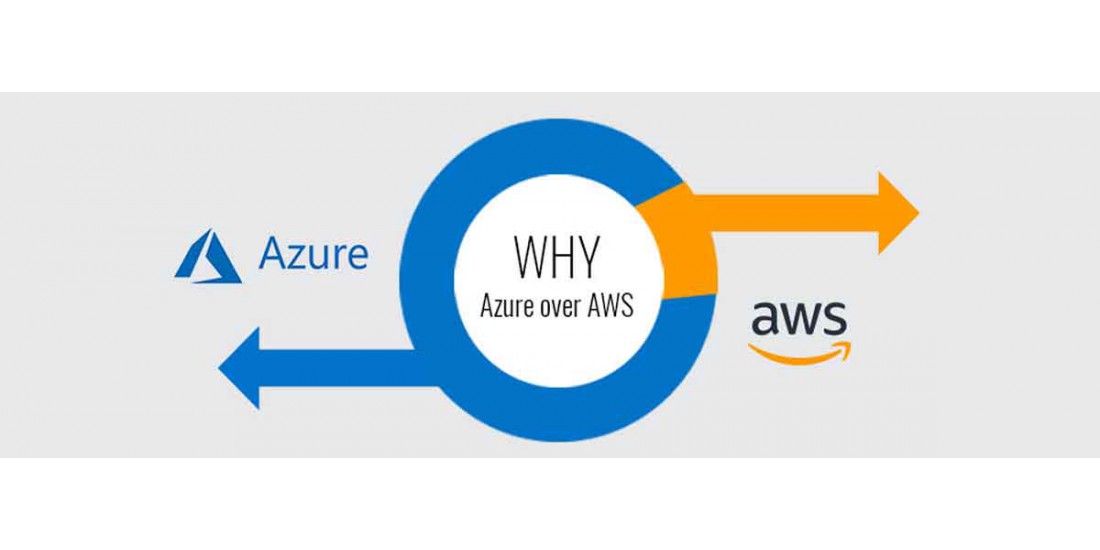
Is Azure more secure than AWS?
When choosing which platform to use to develop our digital projects, it is necessary to be well educated about all the necessary efforts involved in deploying projects that require computing power. Normally we find different questions such as: is a physical infrastructure or in the cloud better? What is the best option in the cloud? Which option is cheaper? What benefits do each have?

Currently there are 2 companies that reign in the world of Cloud Computing such as: Microsoft Azure and Amazon Web Service, each with a wide range of products that fulfill various functions. In this post, we will address all two at the same time to explore which one to choose when developing your own projects or when we sell services. Acquiring cloud computing models requires a deeper study than that of any other technology for companies, because there are several providers with terms that are really confusing but essential to understand in order to choose properly. That is why below I make a comparison of Amazon Web Services vs. Azure
This is where the difference appears
Both Azure and AWS (Amazon Web Services) offer a variety of infrastructure as a service (IaaS), platform as a service (PaaS), and software as a service (SaaS) offerings. The choice between the two, with AWS the dominant market leader, is generally based on business requirements and online research or direct referrals (some of your contacts recommend a solution based on price, uptime, or other). In both AWS and Azure services they have different characteristics and work under a different scheme.
Why choose Azure?
It is a Microsoft product. Working a bit, but I guess you already use several of their products, be it Windows, Office, Skype, LinkedIn or Bing. AWS was likely the first major provider of public cloud services (2006) and has the largest market share, but Microsoft is gaining ground.
Many companies seek to reduce outgoing expenses, and Azure offers several ways to do so. There is no point in involving a provider other than Microsoft if your core software is Microsoft based. Obviously you will pay more for Microsoft solutions through another provider.
Software licensing is another potential spending area. With Azure, existing on-premises licenses are converted for free for use in the cloud. In addition, holders of Enterprise license agreements can obtain discounts from Azure.
Azure can be quickly expanded or reduced to suit any demand, this is its popular ‘pay-per-use’. There is the option of billing per minute, and Microsoft is also committed to matching competitor prices for known infrastructure services such as process, storage, and bandwidth. Furthermore, all the information stored in Azure can be exported to other environments without any restrictions.
Why choose AWS?
Pioneer in the cloud, since it started in 2006, unlike Azure, which started in 2010, offering scalability and flexibility for hosting, charging for consumption without minimum requirements and no consumption limit on the same instance purchased, unlike Azure that manages a scheme by boxes and that growing consumption can take longer.
Another advantage of AWS over any type of service is Saas or Iaas is, for example, AWS Lambda, which consists of automatically executing algorithms, greatly reducing Saas consumption and speeding up processes that are periodic under some model or product.
Highlights of both AWS vs. Azure:
- AWS is more focused on serverless models by providing comprehensive tools to still put aside expensive hardware, licensing, and administration.
- Azure is focused on hybrid cloud models with the advantage that on-premise models coexist better because they already have a Microsoft license.
- AWS has scalability and natural flexibility with no minimum consumption.
- Azure grants default storage packages.
- AWS already has products for highly automated machine learning solutions suggesting the behavior of algorithms.
- Azure also has ML products only less automated, more development is necessary and with certain limitations for operation and adaptability.
If you have decided to migrate part or all of your business to the cloud, invest time and resources in conducting a thorough analysis of your company’s needs. The offer of cloud services is very varied and adapts to diverse business profiles.

